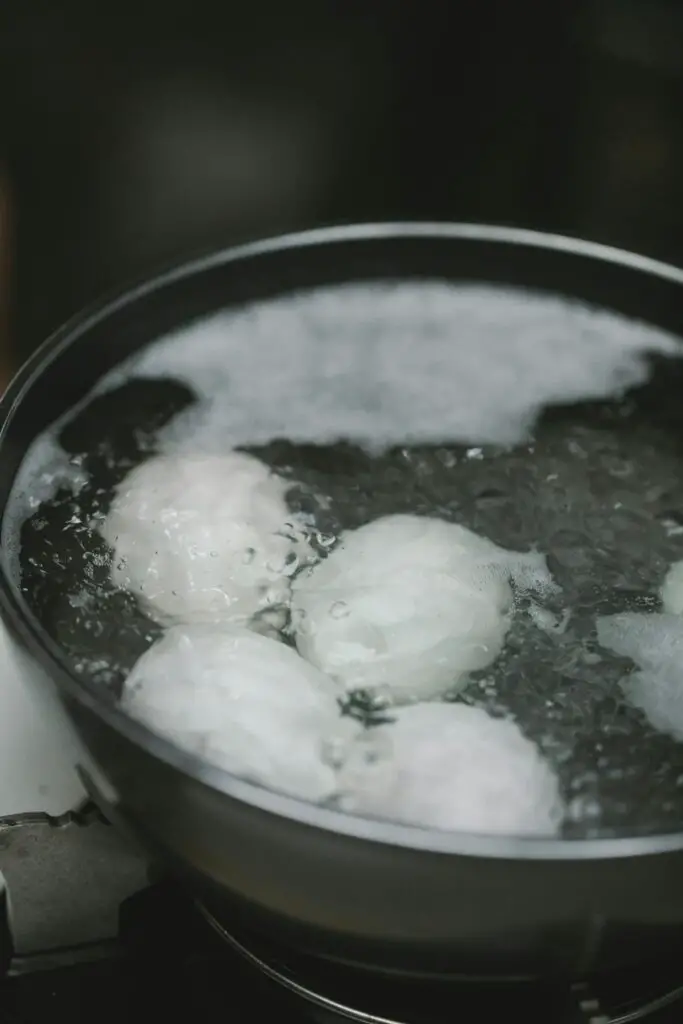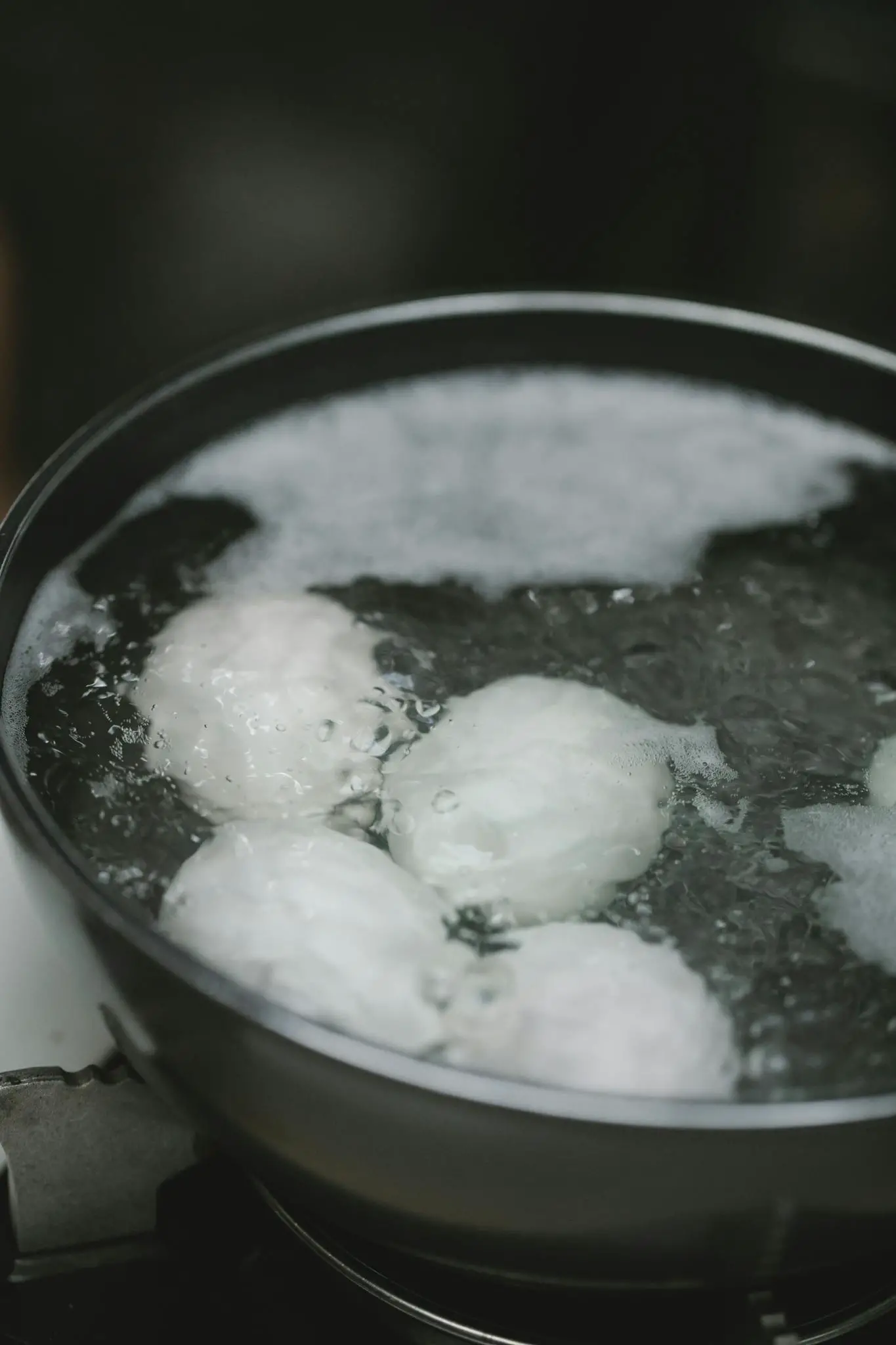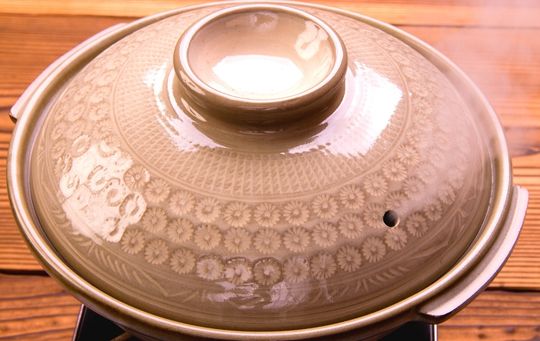Boiling eggs is a staple cooking technique that many of us have mastered. However, what happens when you forget to thaw your eggs and you’re in the mood for some boiled goodness?
Can you boil frozen eggs? Yes, you can boil frozen eggs. Thaw the frozen eggs first using methods like refrigeration or cold water. Once thawed, follow the standard boiling process for fresh eggs, including simmering for the desired time and then cooling in ice water to achieve the desired level of doneness.

Can You Boil Frozen Eggs?
Yes, you can boil frozen eggs, but it’s essential to thaw them properly first. Thawing ensures even cooking and prevents issues like cracking during boiling. You can thaw frozen eggs in the refrigerator, cold water, or even a microwave. Once thawed, proceed with the standard boiling process for fresh eggs, which includes simmering for the desired time and then cooling in ice water. While there may be slight differences in texture and shell integrity compared to fresh eggs, boiling frozen eggs can be a convenient option when you’re in a pinch.
Thawing Frozen Eggs
Properly thawing frozen eggs is a crucial first step in the process. Thawing guarantees that the eggs cook evenly and minimizes the risk of issues such as cracking during boiling. Here’s how to thaw frozen eggs correctly:
- Refrigerator Method: Place the frozen eggs in the refrigerator for several hours or overnight. This gradual thawing process is the safest, as it reduces the risk of bacterial growth.
- Cold Water Method: If you’re pressed for time, you can use the cold water method. Seal the frozen eggs in a plastic bag and submerge them in a bowl of cold water. Change the water every 30 minutes to maintain a safe temperature. This method typically takes 1-2 hours, depending on egg size.
- Microwave Method: While not the recommended method due to the potential for uneven thawing and partial cooking, you can use a microwave’s defrost setting to thaw eggs quickly. Be cautious to prevent cooking the eggs in the microwave inadvertently.
Boiling Thawed Eggs
Once your frozen eggs are adequately thawed, you can proceed with boiling them to your desired level of doneness. Here’s a step-by-step guide to boiling thawed eggs:
- Place the thawed eggs in a saucepan and cover them with cold water, ensuring at least an inch of water above the eggs.
- Set the saucepan on the stove over medium-high heat and bring the water to a rolling boil.
- Once the water reaches a rolling boil, reduce the heat to low, cover the saucepan with a lid, and allow the eggs to simmer for 9-12 minutes, depending on your preferred level of doneness. For softer yolks, aim for 9 minutes; for firmer yolks, extend the cooking time to 12 minutes.
- While the eggs simmer, prepare a bowl of ice water.
- After the desired cooking time has elapsed, promptly remove the saucepan from the heat and transfer the eggs to the bowl of ice water. This rapid cooling process prevents overcooking and facilitates easier peeling.
- Allow the eggs to sit in the ice water for approximately 5 minutes.
- To peel the eggs, gently tap each one on a hard surface to crack the shell, then roll it between your hands to loosen the shell. Peeling should be relatively easy at this point.
Tips for Perfectly Boiled Frozen Eggs
To achieve the best results when boiling frozen eggs, consider the following tips:
Start with Fresh Eggs
Begin with fresh eggs when you plan to freeze them. Older eggs tend to have thinner whites, which can result in egg whites more prone to splitting during freezing and thawing.
Avoid Freezing in Shells
To prevent shell cracking during freezing, avoid freezing eggs in their shells. As eggs freeze, the liquid inside expands, potentially causing the shells to crack. Freezing beaten eggs in ice cube trays or silicone molds is a preferable option.
Proper Storage
Once you’ve thawed the frozen eggs, avoid refreezing them. Use them within a reasonable timeframe to maintain the best quality and flavor.
Monitor Cooking Time
The cooking time for boiled eggs can vary slightly based on factors such as altitude and egg size. To ensure perfectly boiled frozen eggs, consider experimenting with a small batch to determine the ideal cooking time for your specific circumstances.
Potential Downsides of Boiling Frozen Eggs
While boiling frozen eggs is feasible, it’s important to be aware of potential downsides:
Texture Variations
Frozen eggs may exhibit a slightly different texture compared to fresh ones. The freezing and thawing process can cause the proteins in the egg whites to break down, resulting in a somewhat softer texture. While this may not be noticeable to everyone, it’s worth considering if you have specific texture preferences.
Shell Cracking
As previously mentioned, freezing eggs in their shells can lead to cracking due to the expansion of the egg’s contents as they freeze. This can make peeling the eggs more challenging, and you may end up with some imperfections on the egg whites.
Flavor Differences
Some individuals report subtle flavor variations when comparing boiled frozen eggs to boiled fresh eggs. While this difference is generally minimal, it’s something to keep in mind if you have a particularly discerning palate.
Conclusion
In conclusion, boiling frozen eggs is entirely achievable with the right preparation and care. Thawing frozen eggs correctly is the key to ensuring even cooking and preventing issues like cracking. While there may be slight differences in texture, shell integrity, and flavor compared to boiling fresh eggs, the convenience of having frozen eggs on hand can be a valuable asset in various culinary situations.
So, the next time you forget to thaw your eggs but have a craving for perfectly boiled ones, rest assured that you can still enjoy them with a little extra attention to the thawing process. Happy boiling!






